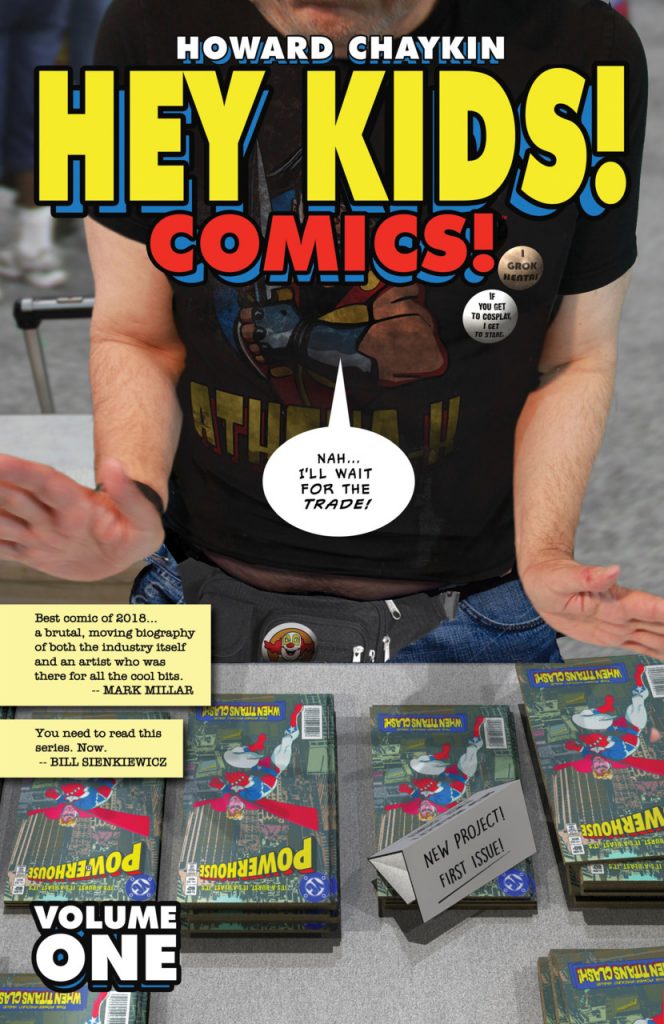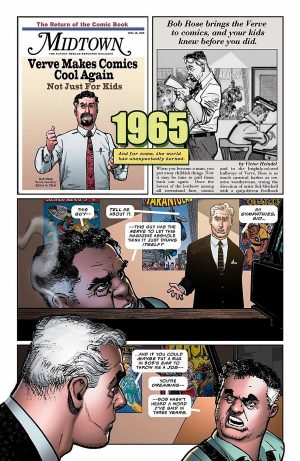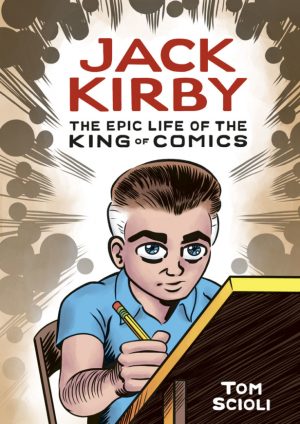Review by Frank Plowright
For many years Howard Chaykin has been a cynical presence calling life as he sees it, unconcerned about stoking controversy and a storyteller able to switch between comics and TV. He remains one of the few comic creators who broke through in the early 1970s and is a) still working in the industry, b) still maintaining his artistic standards, and c) still has something relevant to say and the fire to say it. Not all of his barbed arrows score bullseyes, but his hit rate is higher than those he annoys would care to admit. With Hey Kids! Comics!, he turns his attention to the comic industry’s sordid past, prefacing his main feature with a spread showing the main cast members along with a tart description, some several times as they age through the decades. It’s a useful tool.
Anyone with a knowledge of American comics history will be able to pick through Chaykin’s aliases spotlighting Verve Comics and Yankee Comics, along with those who work for them, as he dots between the eras. His own career began assisting Gil Kane, so Chaykin hung out with the older guys back in the day, and has kept his eyes and ears open since, making him an authority on industry dirt. Despite this, his afterword insists Hey Kids! isn’t a score-settling exercise, but a log of truths, half-truths, rumours and unsubstantiated gossip too good to exclude.
He follows three main characters in Ray Clarke, Benita Heindel and Ted Whitman, one identifiable to historians, the other two more amalgams, piecing their lives together, starting just after World War II ends, beginning the comic industry’s first slump. His final stop is 2015, but this isn’t a linear progression, instead a series of dips into the past in which the same characters recur, sometimes up, but mostly down, also filtering other creators in when needed. While it’s fun attempting to guess who the various creators are behind the aliases (some are more obvious than others), that’s missing the point. Chaykin might hide behind a hefty dose of glib commentary, but there’s no mistaking that he actually cares. A constant theme is how little respect there is for creators of properties earning companies billions of dollars, while those companies have spent massive amounts to avoid ever acknowledging creative input, let alone rewarding it. People generally considered nice guys are here given a good kicking for their parts in that, or their avatars are. Will Eisner fans, look away now. Interestingly, the only decade since the 1940s entirely swerved is the 1980s, during which Chaykin was most highly acclaimed for innovation.
The hypocrisy and backstabbing is funny, but Chaykin’s point is serious and well made. Whether or not readers unfamiliar with comics history will be as engaged as those who do know it can only be speculated, but Hey Kids! was successful enough to generate a second dose of scabrous truth with Prophets and Loss.




